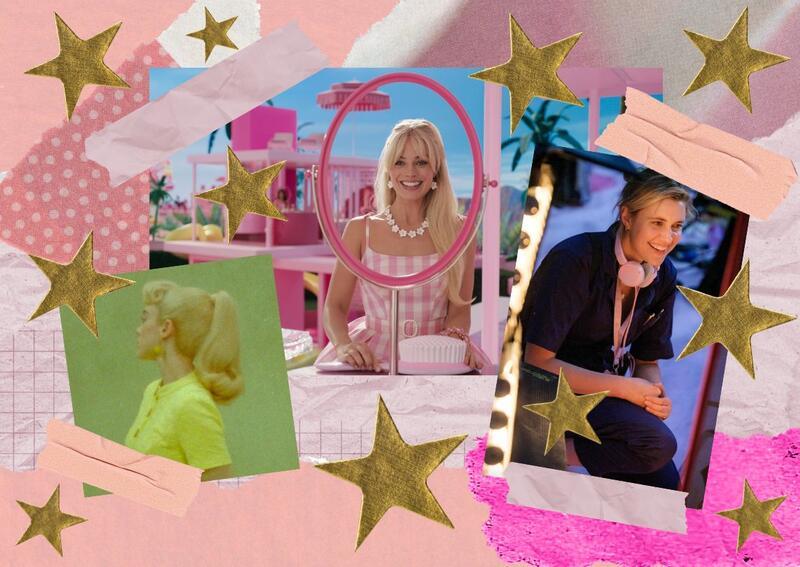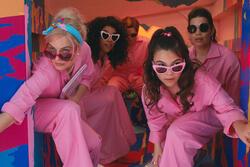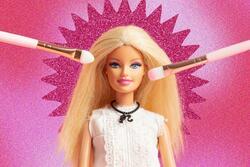What Was the Barbie Movie Made For?
Billie Eilish’s “What Was I Made For?” is the standout song of the Barbie movie. It comes at the end of the movie as Barbie contemplates her purpose. This song was made for the Barbie’s soundtrack but what was the Barbie movie itself made for?
This past Thanksgiving, Barbie ended up being a topic of my family’s dinner conversation. While I was excitedly describing it to my grandparents, my brother interrupted to say that he didn’t like the movie at all. Not only did he feel that the movie was too forced and over-the-top, but also, he left the theater feeling guilty for something he didn’t do. Other male family members chimed in, saying that they felt the movie called out all men for something only some men do. While this feeling can be uncomfortable, I think it is a productive and important experience for them. This is the main message of the movie.
Women get put into boxes all the time. Women get called emotional, dramatic, weak… the list of sexist cliches is endless. For most of the history of American pop culture, women have been singularly grouped under harsh expectations and stereotypes. We are used to it. I am used to it.
The Barbie movie gives a refreshing reversal to that norm, placing men in the box instead. From America Ferrera’s monologue, it is clear to viewers that this movie delivers a strong message of female empowerment. In this scene, Gloria (played by Ferrera) teaches Barbie about women’s experiences. It is a “feminism 101” speech of sorts. I’ve heard people I know complain that this speech was all things they had heard before, that the movie was repetitive and was too basic of an introduction to feminism to make any real change. But of course, that was the point. We women all know about misogyny, but Barbie doesn’t since she’s a doll. And neither do many men. Based on the reaction from some of the men in my life, even though they know about it, they don’t really get it. They didn’t empathize with it; they saw the movie and felt unfairly criticized.
While director Greta Gerwig admits the movie criticizes men, she believes that the movie is truly humanist. She says, “this movie is also dealing with [the idea that] any kind of hierarchical power structure that moves in any direction isn’t so great,” demonstrated by the existence of Barbieland. The bubblegum-colored utopia, while seemingly perfect at the beginning of the movie, is similarly oppressive to the Kens as the Real World is to Barbies. In Barbieland, Barbies have all the power, all the authority, and all the houses. Kens are just… Kens. They don’t have a greater identity outside of their job or their Barbie. Only when Ryan Gosling’s Ken travels to the Real World and experiences a patriarchal society does this system of oppression start to unravel and the Kens start to question their purpose and sense of self. Whether the women or men are in power, if any one group has too much power over another it can cause great harm to society. Even though the Barbies are ruling with happiness, dance parties, and fashion, they are still ruling. In this example, Greta Gerwig uses bright colors, fabulous clothes, and cute songs to ease the viewers into the harsh world of hierarchy and shows how equity is best for all.
Movie-goers went to the theaters, dressed head-to-toe in hot pink to see their favorite childhood toy (and icon) come to life, and left the theater with a multitude of reactions. Some felt like me, in awe of the fashion and music, obsessed with Margot Robbie, nostalgic for a childhood filled with Barbie dolls, and especially empowered to make change. Others felt like my dad and brother: uncomfortable with this movie and with how it made them feel. This is what Barbie was made for. This movie was meant to make change, and change is uncomfortable, especially when it highlights an imbalance of power. Not all discomfort must be bad, though. It can be a symptom of progress in a new direction. When people are forced to look inward and recognize negative aspects of their personality or behavioral tendencies, they get upset. Recognition, though, is the first step towards evolution. We don’t always know “how to feel,” but thanks to movies like Barbie and influential women like Margot Robbie, Greta Gerwig, and Billie Eilish, “someday [we] might.”
This piece was written as part of JWA’s Rising Voices Fellowship.







